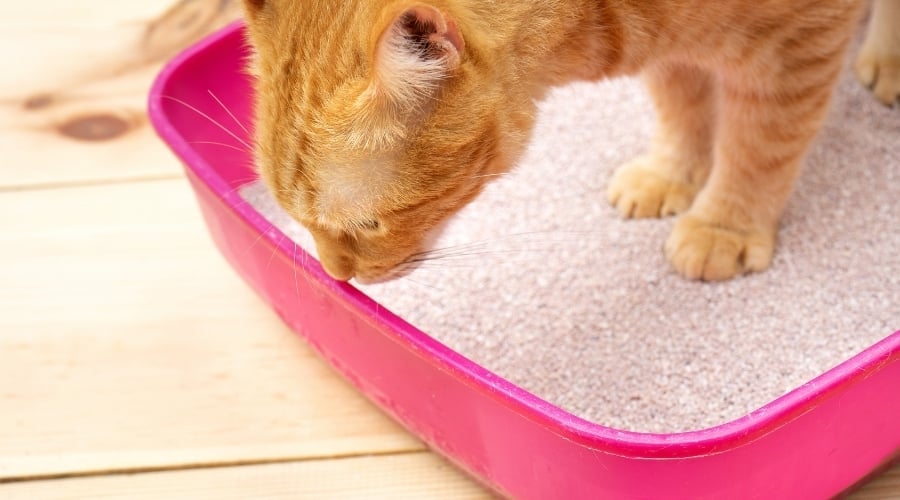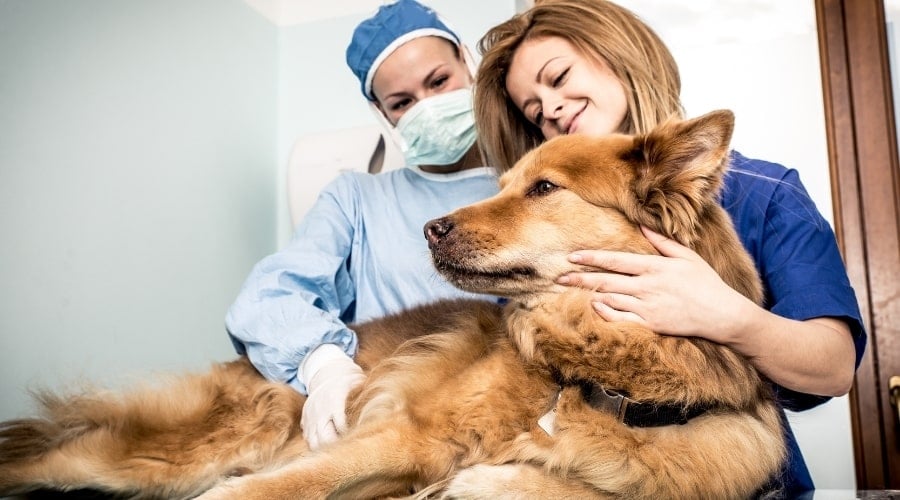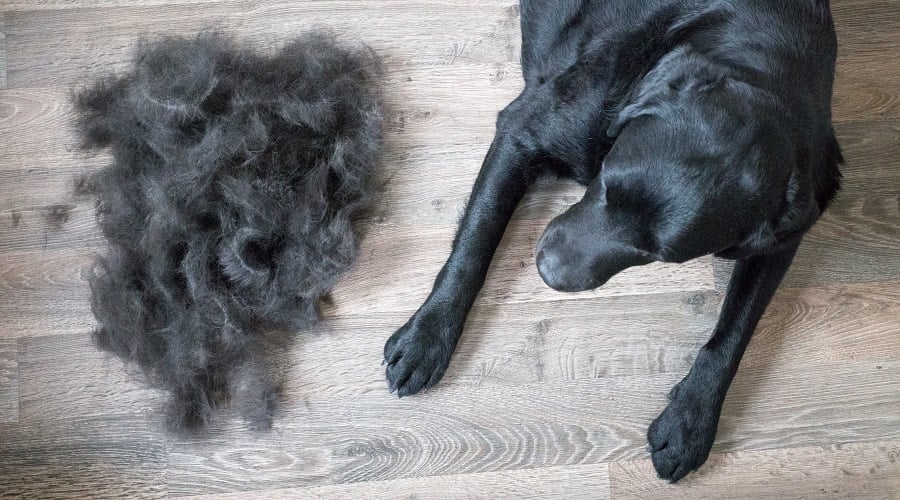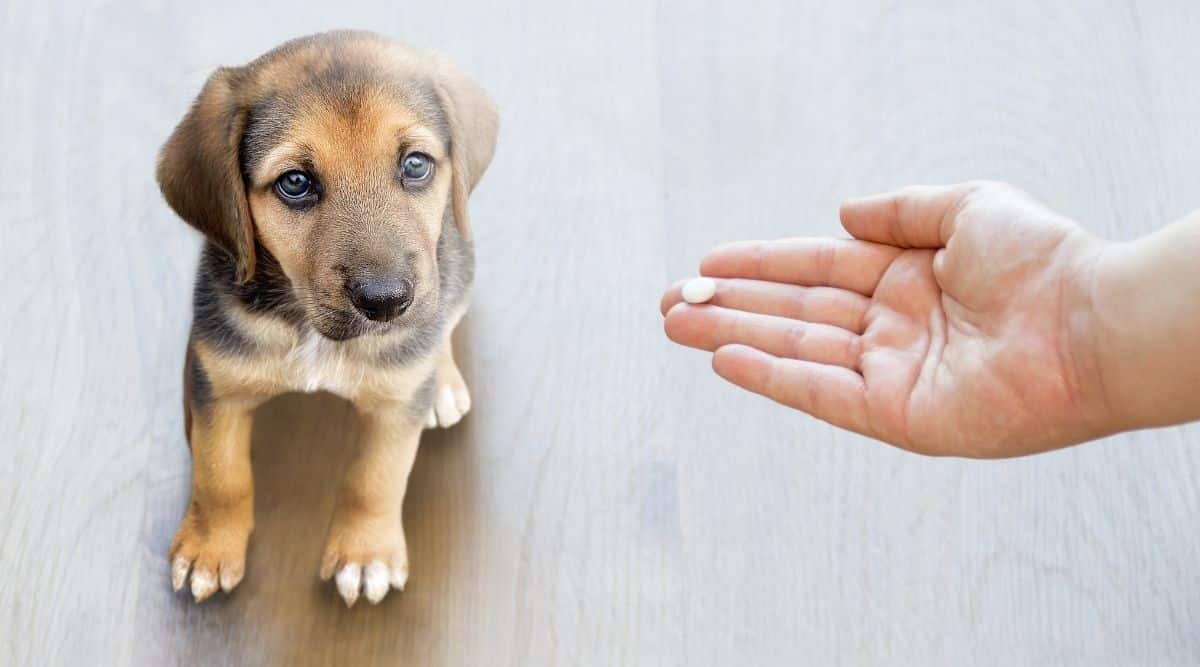My Dog Just Ate Cat Poop: Should I Worry?
When you purchase through links on our site, we may earn a commission. Here’s how it works.
You just caught your dog with their snout in the litter box—and now they’re looking up at you, tail wagging like they just won the lottery. Grossed out doesn’t even begin to cover it. But beyond the “ew” factor, what does this mean for their health?
Table of Contents

Let’s unpack why dogs eat cat poop, what risks come with it, and how to stop this stink-fueled habit—before it becomes a routine.
Is It Normal For Dogs To Eat Cat Poop? (Yes—You’re Not Alone)
You might be think, “What kind of monster did I adopt?” But here’s the truth: poop-eating is disturbingly common in dogs. This behavior even has a name: coprophagia.
Dogs are scavengers by nature. They explore the world with their mouths. And for reasons only dogs understand, cat poop checks a lot of boxes: it’s warm, it’s “freshly processed protein,” and—gross but true—it smells like leftover food.
Veterinarians see this issue all the time. It doesn’t mean your dog is sick, weird, or broken. It just means they’re … well, a dog.
So take a breath. You’re not alone. You’re just living with a poop-curious pup.
Why Dogs Eat Cat Poop (And Why They’re So Darn Proud Of It)
Dogs are natural scavengers. It’s in their DNA to sniff, hunt, and—unfortunately—eat things they absolutely shouldn’t.

The Usual Suspects
Dog ate cat poop? The most common reasons for a dog eating poop include:
- Boredom or anxiety
- Curiosity—especially in puppies
- Nutrient deficiencies or malabsorption
- Behavioral reinforcement (yes, your reaction might be part of the problem)
Some medical conditions (e.g., diabetes, parasitic infection, thyroid disease) may also lead to this behavior.
While this habit may have some evolutionary and survival reasons, it should not be considered a normal, acceptable behavior for your pup.
Can Dogs Get Addicted To Eating Cat Poop?
If this is becoming a repeat performance, you might wonder—is this just a phase, or is my dog obsessed?
Here’s what’s going on: dogs repeat rewarding behaviors. If eating cat poop gives your dog a tasty payoff (and no consequences), they’ll keep doing it. Over time, this can become a learned habit, especially if the behavior also reduces stress or boredom.
It’s not a literal addiction—but it can mimic compulsive behavior, particularly if:
- Your dog seeks it out obsessively
- Redirecting them has no effect
- They guard the litter box like a resource
In those cases, breaking the cycle requires more than locking doors—it may involve:
- Structured training and redirection
- Environmental management
- Working with a behaviorist if the behavior is deeply entrenched
Think of it like breaking a bad habit in humans: access, routine, and reward all must shift.
Is Cat Poop Dangerous For Dogs? The Honest Risk Breakdown
Unfortunately, yes—it’s not just disgusting; it can be dangerous.

Here’s what your dog could be exposed to:
- Parasites: Feces can carry Toxoplasma gondii, roundworms, hookworms, and giardia. Common signs of parasites include diarrhea, vomiting, lethargy, and weight loss.
- Bacterial infections: Salmonella, E. coli, and Campylobacter are common in fecal matter. These can trigger diarrhea, vomiting, and even sepsis in vulnerable dogs.
- Litter ingestion hazards: Clumping litter, especially clay-based, can solidify in your dog’s intestines and cause blockages requiring emergency surgery.
Yes, This Can Affect Humans Too
If your dog eats cat feces and then licks your face, they may transmit a zoonotic disease—an infection that jumps from animals to humans. According to the Centers For Disease Control (CDC), this is especially risky for:
- Adults over 65
- Children
- Immunocompromised individuals
- Pregnant women
Always wash your hands and sanitize surfaces if you suspect your dog’s been in the litter box.
What To Do Immediately After Your Dog Eats Cat Poop
Don’t panic—do this instead:
- Remove access immediately. Shut the door, move the litter box, block it off—whatever it takes.
- Avoid licking contact. If your dog’s been snacking on feces, you definitely don’t want a big sloppy kiss. Beyond the gross factor, there’s a risk of transmitting parasites or bacteria.
- Watch closely. Some dogs stay symptom-free. Others? Not so lucky. Be alert for illness over the next 24–72 hours. In particular, monitor for signs of parasitic infection, especially if your dog got into outdoor cat poop.
- Call your vet. Your vet may recommend a dewormer or fecal test, especially if this isn’t your dog’s first litter-box raid.
How To Clean Your Dog’s Mouth After Eating Poop
You don’t need to sanitize their soul—but you can make their mouth less horrifying after a litter box binge.
Here’s how to safely freshen things up and help reduce the bacterial load:
- Offer fresh drinking water right away. This encourages natural flushing and removes debris.
- Gently rinse the mouth with plain water. Use a cup or pet-safe bottle to pour water from the side of the mouth—not straight down their throat.
- Use a dog-safe dental wipe or dog toothpaste (if they tolerate it). Never use human toothpaste—it could contain xylitol, which is toxic to dogs.
- Give them a dental chew or crunchy treat. Not a cure-all, but it helps reduce odor and grime until you can brush.
- Skip mouthwash or hydrogen peroxide. They can irritate your dog’s mouth or even be harmful if swallowed.
And maybe … just maybe … keep that face-licking to a minimum for the rest of the day.
How To Keep Your Dog Out Of The Litter Box—For Good
This isn’t just a gross one-off. If your dog’s developed a taste for cat poop, they’ll likely try again. Prevention is key.
Your Litter Box Lockdown Plan
- Physically restrict access. Use baby gates, magnetic cat doors, or place the litter box in a cabinet only the cat can reach.
- Switch to a covered litter box. Just make sure it’s still comfortable and safe for your cat.
- Use a motion sensor deterrent. Some pet owners swear by air-spray barriers (e.g., PetSafe SSSCAT) that trigger when the dog gets too close.
- Clean the litter box frequently. Remove temptation by keeping things tidy.
Real-Life Fixes From Dog Parents Who’ve Been There
I was already aware that poop-eating was a common concern among dog parents, so when I adopted my dog, Rio, I wanted to get ahead of it.
One of the first things I did was move the litter box to the basement and install a baby gate at the top of the stairs. The gate has a small pet door that lets the cats through—but blocks Rio from going down.
It’s worked perfectly. The girls have their private space, and Rio has never even had the chance to develop a litter box obsession.
– Tara Maurer, Dog Mom & Writer For Canine Journal
My dog Tiny fortunately doesn’t eat his own poop or those of other dogs, but I discovered quickly when I rescued two cats that he thinks cat poo is a delicacy. He would dive head-first into their litterboxes any chance he got.
I tried several methods, but what ultimately worked was having to get litterboxes with openings high enough off the ground and small enough that he can’t get his snout in. He’s a short dog, so this may not work for taller pups, but that’s the best solution I could find. My cats got used to jumping up to get in their litterbox right away.
– Sally Jones, Rescue Dog Mom, Canine Journal Research & Writing
My dog Daisy has a not-so-charming snack obsession: cat poop. She’s got a nose like a bloodhound and an uncanny ability to detect a fresh deposit in the litter box within seconds. For a while, she was a professional poop burglar, snatching up “kitty tootsie rolls” like they were gourmet treats.
So I took action. Drastic, poop-proof action. In order to stop the issue, I had to put a physical barrier between Daisy and the cat box.
Now, the cats have a litter box tucked inside a tall plastic bin. Both rooms with litter boxes are guarded by baby gates like high-security vaults. I scoop the boxes multiple times daily, practically on a military schedule. My family teases me, calling me “cat poop obsessed.” But honestly? I just never want to relive the horror of Daisy’s cat poop buffet again.
– Danielle DeGroot, Rescue Dog Mom, Canine Journal Research & Writing
Addressing The Root Cause: Why Your Dog Might Be Eating Poop
Blocking access to the litter box is essential—but it won’t solve the problem if your dog keeps returning. To stop the habit for good, you need to get to the “why.”
Behavioral & Environmental Triggers
Most commonly, poop-eating stems from stress, boredom, or under-stimulation.
Ask yourself:
- Is your dog left alone for long periods?
- Do they get enough mental and physical exercise each day?
- Are they seeking attention or comfort from the behavior?
- Do they lack a strong “leave it” or redirection cue?
If the answer to any of those is yes, your dog may be self-soothing or simply filling their day with unpleasant hobbies.
Nutritional Or Medical Triggers
Sometimes, dogs eat poop because their body is missing something—or not processing nutrients correctly.
This could point to:
- A low-quality or poorly balanced diet
- Digestive enzyme deficiencies
- Malabsorption issues like exocrine pancreatic insufficiency (EPI)
- Anemia or other systemic problems (rare but possible)
Ask your vet if bloodwork, a fecal exam, or a diet review is worth doing—especially if your dog’s appetite seems ravenous, they’re losing weight, or they’re eating multiple forms of feces (their own, other animals’, etc.).
What You Can Do
- Increase daily enrichment: Puzzle feeders, sniff walks, and interactive toys can reduce boredom-related scavenging.
- Train a reliable “leave it”: Start with food on the ground and slowly progress to higher temptations.
- Reward avoidance: When your dog chooses not to go for the litter box, praise like crazy. Reinforce what you want.
- Consult your vet or a behaviorist: Persistent poop-eating often benefits from a combined medical and behavioral approach.
Need More Help? Try Vet-Tested Solutions That Work
If your dog’s poop obsession is proving hard to break—or you want to try proven supplements or deterrents—we’ve got you covered.
Check out our guide: How To Stop a Dog From Eating Poop: 9 Vet-Tested Solutions
When It’s Time To Visit The Vet
If your dog shows any of these signs after their litter box heist, get to the vet ASAP. Serious symptoms of a dog eating cat poop or kitty litter include:

- Abdominal swelling or pain
- Difficulty passing stool
- Excessive drooling or pacing
- Refusal to eat
- Severe vomiting or diarrhea
- Tremors, confusion, or seizures
If your veterinarian has concerns about your pet, they may recommend bringing them in for an examination.
Frequently Asked Questions
Curious, worried, or totally overwhelmed? You’re not alone. Here are the questions dog owners ask most when their pup turns into a litter box raider. Don’t see yours? Ask us in the comments!
Is Cat Poop Toxic To Dogs?
Yes, cat feces can carry harmful bacteria and parasites that affect dogs. These include Toxoplasma gondii, roundworms, and E. coli.
What Should I Do If My Dog Ate Kitty Litter?
Start by identifying the type of litter. Clumping litter (like clay or silica) is more dangerous and can cause blockages. Non-clumping types (paper, corn) are usually less risky.
Watch for signs like vomiting, bloating, straining to poop, or loss of appetite. If your dog ate a large amount or shows any symptoms, call your vet immediately.
Even if your dog seems fine, it’s best to monitor closely for the next 24 hours.
Will Eating Cat Poop Make My Dog Sick?
Not always, but it can. Some dogs show no symptoms, while others develop GI issues or infections. Your vet can run a fecal test to confirm.
Why Do Dogs Eat Poop In General?
Dogs may eat poop out of boredom, anxiety, nutritional deficiency, or instinct. It’s gross but common—and usually fixable with behavior changes.
Can My Dog Pass Parasites To Me After Eating Cat Feces?
Yes. Some parasites can be transmitted from dog to human indirectly. This is especially dangerous for pregnant women or immunocompromised individuals.
More Unusual Dog Habits
Want more honest answers about weird (and sometimes gross) dog behavior? Explore our guides to unusual dog habits, including butt-sniffing, poop-rolling, zoomies, and more.



